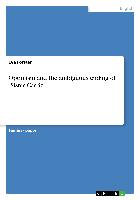- Start
- Optimism and the ambiguous ending of "Sister Carrie"
Optimism and the ambiguous ending of "Sister Carrie"
Angebote / Angebote:
Seminar paper from the year 2003 in the subject American Studies - Literature, grade: 1, 0, University of Stuttgart (Literaturwissenschaft, Amerikanistik), course: History of American novels, 10 entries in the bibliography, language: English, abstract: When looking at the interesting history of Theodore Dreiser's first novel, Sister Carrie, it might be, for the today's readers, strange to see that Dreiser had, in his days, major problems to have his book published. One of the main problems with the book has been the ending, where it seems that Carrie, the main character of the novel, is rewarded for her illicit relationships. As a consequence, the audience around 1900 must have felt offended by this kind of 'positive' outcome. But knowing that Dreiser is one of the great naturalistic writers in the American history, it actually is rather surprising to think of him as an author taking an optimistic point of view on one of his characters or to put it another way, to take just one point of view, which is only optimistic.
One of the aims of this paper is to find out, whether there really is any optimism within the characters in Sister Carrie, whereby I will mainly focus on Carrie because looking at every main character would go beyond the scope of this task. This approach would be a way to look at the structure of the novel from within. Furthermore I will examine the development of Carrie from the outside, i.e. her development on the surface of the novel. My starting point for this will be the ending - that may sound strange first, but considering, that it is ambiguous (i.e. it serves different readings), this is the easiest way to track down several developments, if there are any, and to see if any of them convey the idea of optimism.
Folgt in ca. 5 Arbeitstagen
